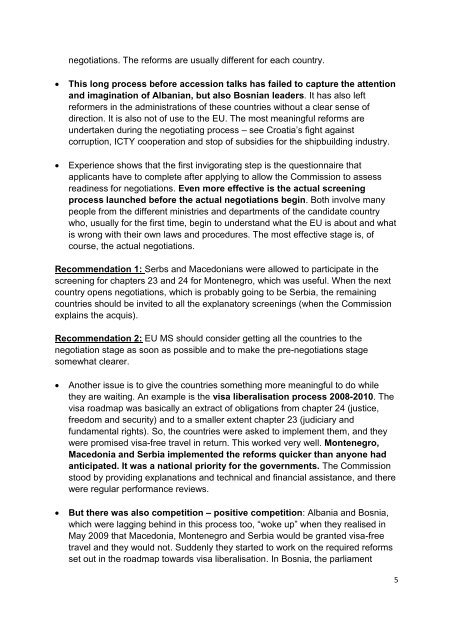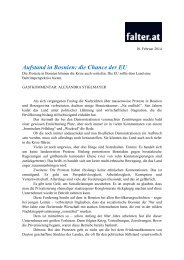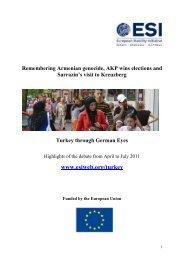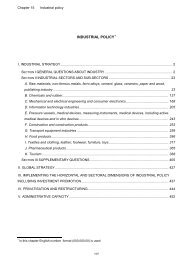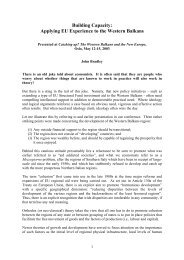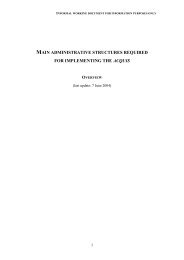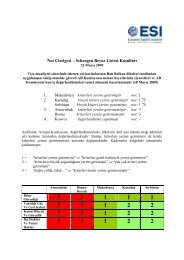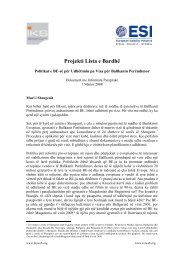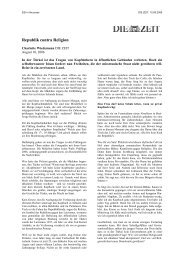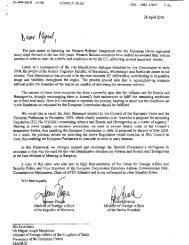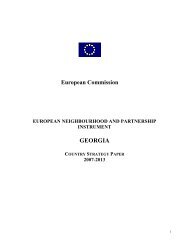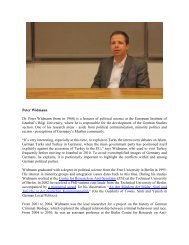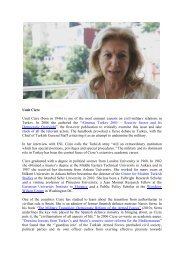Speaking notes Alexandra Stiglmayer, ESI Senior Analyst
Speaking notes Alexandra Stiglmayer, ESI Senior Analyst
Speaking notes Alexandra Stiglmayer, ESI Senior Analyst
You also want an ePaper? Increase the reach of your titles
YUMPU automatically turns print PDFs into web optimized ePapers that Google loves.
negotiations. The reforms are usually different for each country.<br />
This long process before accession talks has failed to capture the attention<br />
and imagination of Albanian, but also Bosnian leaders. It has also left<br />
reformers in the administrations of these countries without a clear sense of<br />
direction. It is also not of use to the EU. The most meaningful reforms are<br />
undertaken during the negotiating process – see Croatia’s fight against<br />
corruption, ICTY cooperation and stop of subsidies for the shipbuilding industry.<br />
Experience shows that the first invigorating step is the questionnaire that<br />
applicants have to complete after applying to allow the Commission to assess<br />
readiness for negotiations. Even more effective is the actual screening<br />
process launched before the actual negotiations begin. Both involve many<br />
people from the different ministries and departments of the candidate country<br />
who, usually for the first time, begin to understand what the EU is about and what<br />
is wrong with their own laws and procedures. The most effective stage is, of<br />
course, the actual negotiations.<br />
Recommendation 1: Serbs and Macedonians were allowed to participate in the<br />
screening for chapters 23 and 24 for Montenegro, which was useful. When the next<br />
country opens negotiations, which is probably going to be Serbia, the remaining<br />
countries should be invited to all the explanatory screenings (when the Commission<br />
explains the acquis).<br />
Recommendation 2: EU MS should consider getting all the countries to the<br />
negotiation stage as soon as possible and to make the pre-negotiations stage<br />
somewhat clearer.<br />
Another issue is to give the countries something more meaningful to do while<br />
they are waiting. An example is the visa liberalisation process 2008-2010. The<br />
visa roadmap was basically an extract of obligations from chapter 24 (justice,<br />
freedom and security) and to a smaller extent chapter 23 (judiciary and<br />
fundamental rights). So, the countries were asked to implement them, and they<br />
were promised visa-free travel in return. This worked very well. Montenegro,<br />
Macedonia and Serbia implemented the reforms quicker than anyone had<br />
anticipated. It was a national priority for the governments. The Commission<br />
stood by providing explanations and technical and financial assistance, and there<br />
were regular performance reviews.<br />
But there was also competition – positive competition: Albania and Bosnia,<br />
which were lagging behind in this process too, “woke up” when they realised in<br />
May 2009 that Macedonia, Montenegro and Serbia would be granted visa-free<br />
travel and they would not. Suddenly they started to work on the required reforms<br />
set out in the roadmap towards visa liberalisation. In Bosnia, the parliament<br />
5


